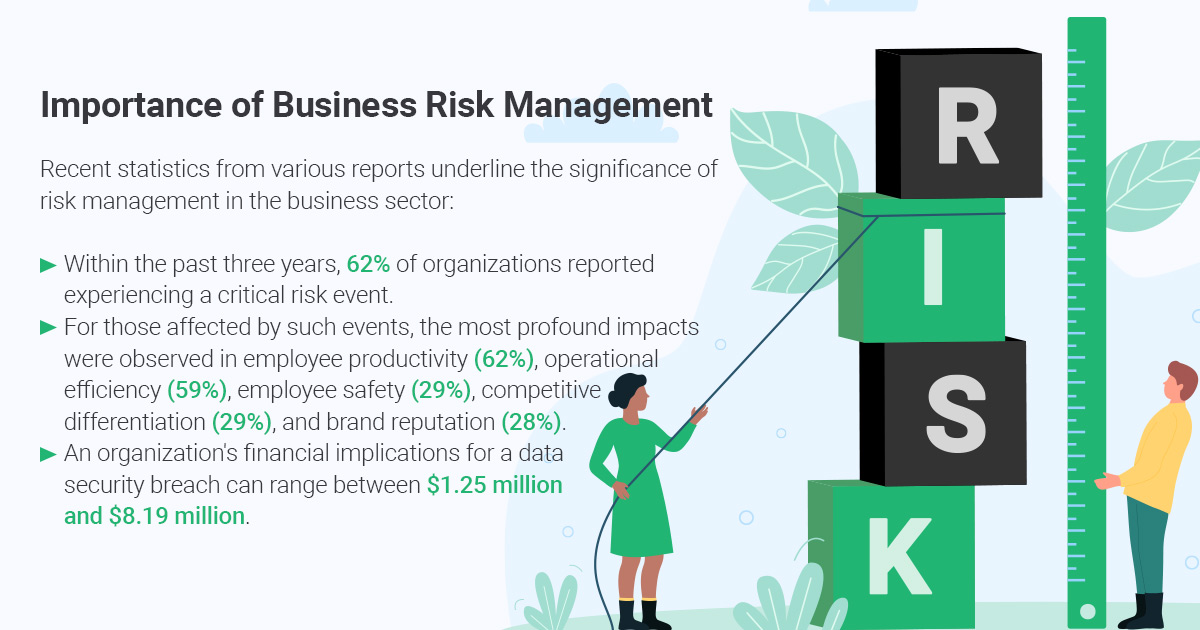The Role and Importance of Risk Management in Ensuring Corporate Continuity
The Role and Importance of Risk Management in Ensuring Corporate Continuity
Blog Article
The Relevance of Recognizing the Relevance of Risk Management in Numerous Industries

The Core Principle of Risk Management and Its Function
Risk Management, the keystone of lots of markets, hinges on the recognition, analysis, and reduction of unpredictabilities in a service environment. It is an indispensable practice that enables companies to guard their assets, reputation, and general survival. By correctly recognizing potential risks, services can establish approaches to either stop these threats from happening or lessen their impact. The evaluation procedure entails evaluating the chance and possible extent of these dangers. As soon as risks have been identified and examined, the mitigation procedure includes creating approaches to minimize their prospective effect. This procedure is cyclical and ongoing, ensuring that services are gotten ready for the ever-changing nature of Risk in various markets. The primary purpose, hence, is to foster strength amidst uncertainties.
Benefits of Executing Risk Management in Business Procedures

Revealing the Function of Risk Management in Different Industries
While every market challenges its unique collection of risks, the execution of Risk Management techniques stays a common measure in their pursuit of sustainability and growth. In the health care market, Risk Management requires ensuring client security and data defense, while in financing, it entails mitigating financial investment dangers and making certain regulatory conformity (importance of risk management). Construction business concentrate on employee security, task delays, and budget overruns. In the innovation field, companies minimize cybersecurity dangers and modern technology obsolescence. Ultimately, the duty of read here Risk Management throughout sectors is to identify, analyze, and alleviate dangers. It is an essential part of critical preparation, making it possible for organizations to secure their assets, make the most of possibilities, and accomplish their purposes.
Real-life Situation Research Studies Showing Effective Risk Management
To comprehend the significance of Risk Management in these lots of sectors, one can look to a number of real-life instances that show the successful application of these procedures. Toyota, post the 2011 quake in Japan, changed its supply chain Management to decrease disruption threats. These cases show exactly how industries, finding out from dilemmas, properly applied Risk Management approaches to reduce future dangers.
Future Patterns and Growths in Risk Management Methods
Cybersecurity, as soon as a More Info peripheral worry, has actually catapulted to the center of Risk Management, with methods concentrating on prevention, reaction, and detection. The combination of ESG (Environmental, Social, Governance) factors into Risk Management is an additional expanding pattern, reflecting the boosting acknowledgment of the function that environmental and social risks play in service sustainability. Thus, the future of Risk Management exists in the blend of sophisticated technology, ingenious approaches, and an all natural strategy.
Conclusion
Finally, recognizing the relevance of Risk Management throughout a spectrum of industries is crucial for their long life and success. Customized approaches can assist alleviate possible risks, protect assets, and foster stakeholder trust fund. In addition, proactive decision-making aids in regulatory compliance and enhances source usage. Ultimately, successful Risk Management adds to much more click site resilient and sustainable services, highlighting the value of this technique in today's very affordable and dynamic organization atmosphere.
While every market challenges its special collection of risks, the implementation of Risk Management strategies continues to be a common denominator in their pursuit of sustainability and development. In the health care market, Risk Management involves ensuring patient security and information protection, while in financing, it entails mitigating financial investment dangers and guaranteeing regulative compliance. Inevitably, the function of Risk Management throughout markets is to recognize, evaluate, and alleviate dangers. These situations show how sectors, finding out from dilemmas, properly used Risk Management methods to reduce future dangers.

Report this page